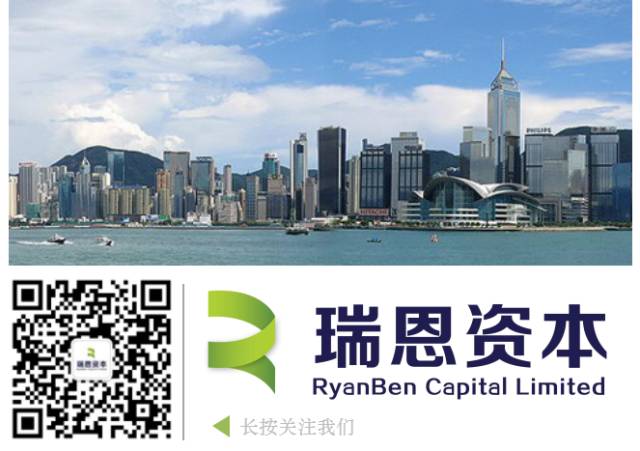美国证监会(SEC)主席Gary Gensler,于7月30日发表声明称,鉴于最近针对中国企业在海外上市所采取的一系列措施给美国投资人带来了新的风险,美国证监会将修改有关涉及中国企业境外上市的信息披露规则(增加特定的信息披露,包括VIE与发行人之间的财务关系等),更好地保护美国投资人的利益。
路透社当天报道的“SEC已停止处理中国公司在美国IPO注册”的消息,指SEC已停止处理内地公司在美国IPO及其他证券销售注册,同时为投资者制定新的指南,以规范内地新监管风险。针对此报道,SEC相关人士并未正面回复。
SEC官网于2021年7月30日披露了Gary Gensler的声明,中文翻译仅供参考,以英文原文为准。
https://www.sec.gov/news/public-statement/gensler-2021-07-30

与中国近期发展相关的投资者保护声明
2021 年 7 月 30 日
最近,中国政府为中国公司在海外筹集资金提供了新的指导和限制,包括通过关联的离岸空壳公司。这些发展包括政府主导的对通过离岸实体筹集资金的某些公司的网络安全审查。
这与美国投资者有关。在中国的许多行业中,公司不得拥有外资所有权,也不能直接在中国境外的交易所上市。为了在此类交易所筹集资金,许多中国运营公司都采用可变利益实体(VIE)的结构。
在这种安排下,一家中国运营公司通常会在开曼群岛等其他司法管辖区设立一家离岸空壳公司,向公众股东发行股票。该空壳公司与这家总部位于中国的运营公司签订服务合同和其他合同,然后在纽约证券交易所等外汇交易所发行股票。虽然壳公司在中国运营公司中没有股权,但出于会计目的,壳公司能够将运营公司合并到其财务报表中。
对于美国投资者而言,这种安排为这家总部位于中国的运营公司创造了“风险敞口”,尽管只是通过一系列服务合同和其他合同。但需要明确的是,无论是壳公司股票的投资者,还是离岸壳公司本身,都没有这家中国运营公司的股权。我担心普通投资者可能没有意识到他们持有的是一家空壳公司的股票,而不是一家中国运营公司的股票。
-
投资者购买的不是一家中国运营公司的股票,而是一家与相关运营公司保持服务协议的空壳公司发行人的股票。因此,发行人的业务描述应明确区分壳公司管理服务的描述与中国运营公司的描述;
-
中国运营公司、空壳公司发行人和投资者面临中国政府未来行动的不确定性,这可能会严重影响运营公司的财务业绩和合同安排的可执行性;和
-
详细的财务信息,包括量化指标,以便投资者了解 VIE 与发行人之间的财务关系。
-
运营公司和发行人(如适用)是否获得中国许可在美国交易所上市或被拒绝;此类批准可能被拒绝或撤销的风险;以及在批准被撤销时披露的义务;和
-
要求公众公司会计监督委员会(PCAOB)在三年内检查发行人的会计师事务所的《控股外国公司责任法》可能会导致运营公司在未来被摘牌,如果 PCAOB 无法检查公司。
除了这一具体指导之外,我们将继续要求所有公司遵守证券法关于完整和准确披露的高标准。
此外,我还要求员工对在中国有重要业务的公司的申请进行有针对性的额外审查。
我相信这些变化将提高与中国运营公司有关联的离岸发行人在注册声明中的整体披露质量。这项工作建立在美国证监会企业融资部先前关于在中国或在中国有重大业务的公司的信息披露注意事项的指南的基础上。[1]
我相信此类披露对于明智的投资决策至关重要,并且是 SEC 保护美国资本市场投资者的职责的核心。
Statement on Investor Protection Related to Recent Developments in China
Chair Gary Gensler
July 30, 2021
Recently, the government of the People’s Republic of China provided new guidance to and placed restrictions on China-based companies raising capital offshore, including through associated offshore shell companies. These developments include government-led cybersecurity reviews of certain companies raising capital through offshore entities.
This is relevant to U.S. investors. In a number of sectors in China, companies are not allowed to have foreign ownership and cannot directly list on exchanges outside of China. To raise money on such exchanges, many China-based operating companies are structured as Variable Interest Entities (VIEs).
In such an arrangement, a China-based operating company typically establishes an offshore shell company in another jurisdiction, such as the Cayman Islands, to issue stock to public shareholders. That shell company enters into service and other contracts with the China-based operating company, then issues shares on a foreign exchange, like the New York Stock Exchange. While the shell company has no equity ownership in the China-based operating company, for accounting purposes the shell company is able to consolidate the operating company into its financial statements.
For U.S. investors, this arrangement creates “exposure” to the China-based operating company, though only through a series of service contracts and other contracts. To be clear, though, neither the investors in the shell company’s stock, nor the offshore shell company itself, has stock ownership in the China-based operating company. I worry that average investors may not realize that they hold stock in a shell company rather than a China-based operating company.
In light of the recent developments in China and the overall risks with the China-based VIE structure, I have asked staff to seek certain disclosures from offshore issuers associated with China-based operating companies before their registration statements will be declared effective. In particular, I have asked staff to ensure that these issuers prominently and clearly disclose:
-
That investors are not buying shares of a China-based operating company but instead are buying shares of a shell company issuer that maintains service agreements with the associated operating company. Thus, the business description of the issuer should clearly distinguish the description of the shell company’s management services from the description of the China-based operating company;
-
That the China-based operating company, the shell company issuer, and investors face uncertainty about future actions by the government of China that could significantly affect the operating company’s financial performance and the enforceability of the contractual arrangements; and
-
Detailed financial information, including quantitative metrics, so that investors can understand the financial relationship between the VIE and the issuer.
-
Additionally, for all China-based operating companies seeking to register securities with the SEC, either directly or through a shell company, I have asked staff to ensure that these issuers prominently and clearly disclose:
-
Whether the operating company and the issuer, when applicable, received or were denied permission from Chinese authorities to list on U.S. exchanges; the risks that such approval could be denied or rescinded; and a duty to disclose if approval was rescinded; and
-
That the Holding Foreign Companies Accountable Act, which requires that the Public Company Accounting Oversight Board (PCAOB) be permitted to inspect the issuer’s public accounting firm within three years, may result in the delisting of the operating company in the future if the PCAOB is unable to inspect the firm.
In addition to this specific guidance, we will continue to hold all companies to the securities laws’ high standards for complete and accurate disclosure.
Further, I also have asked staff to engage in targeted additional reviews of filings for companies with significant China-based operations.
I believe these changes will enhance the overall quality of disclosure in registration statements of offshore issuers that have affiliations with China-based operating companies. This work builds on the SEC’s Division of Corporation Finance’s previous guidance on disclosure considerations for companies based in or with significant operations in China.[1]
I believe such disclosures are crucial to informed investment decision-making and are at the heart of the SEC’s mandate to protect investors in U.S. capital markets.
[1] See CF Disclosure Guidance: Topic No. 10, “Disclosure Considerations for China-Based Issuers” (Nov. 23, 2020), available at https://www.sec.gov/corpfin/disclosure-considerations-china-based-issuers.
版权声明:所有瑞恩资本Ryanben Capital的原创文章,转载须联系授权,并在文首/文末注明来源、作者、微信ID,否则瑞恩将向其追究法律责任。部分文章推送时未能与原作者或公众号平台取得联系。若涉及版权问题,敬请原作者联系我们。
